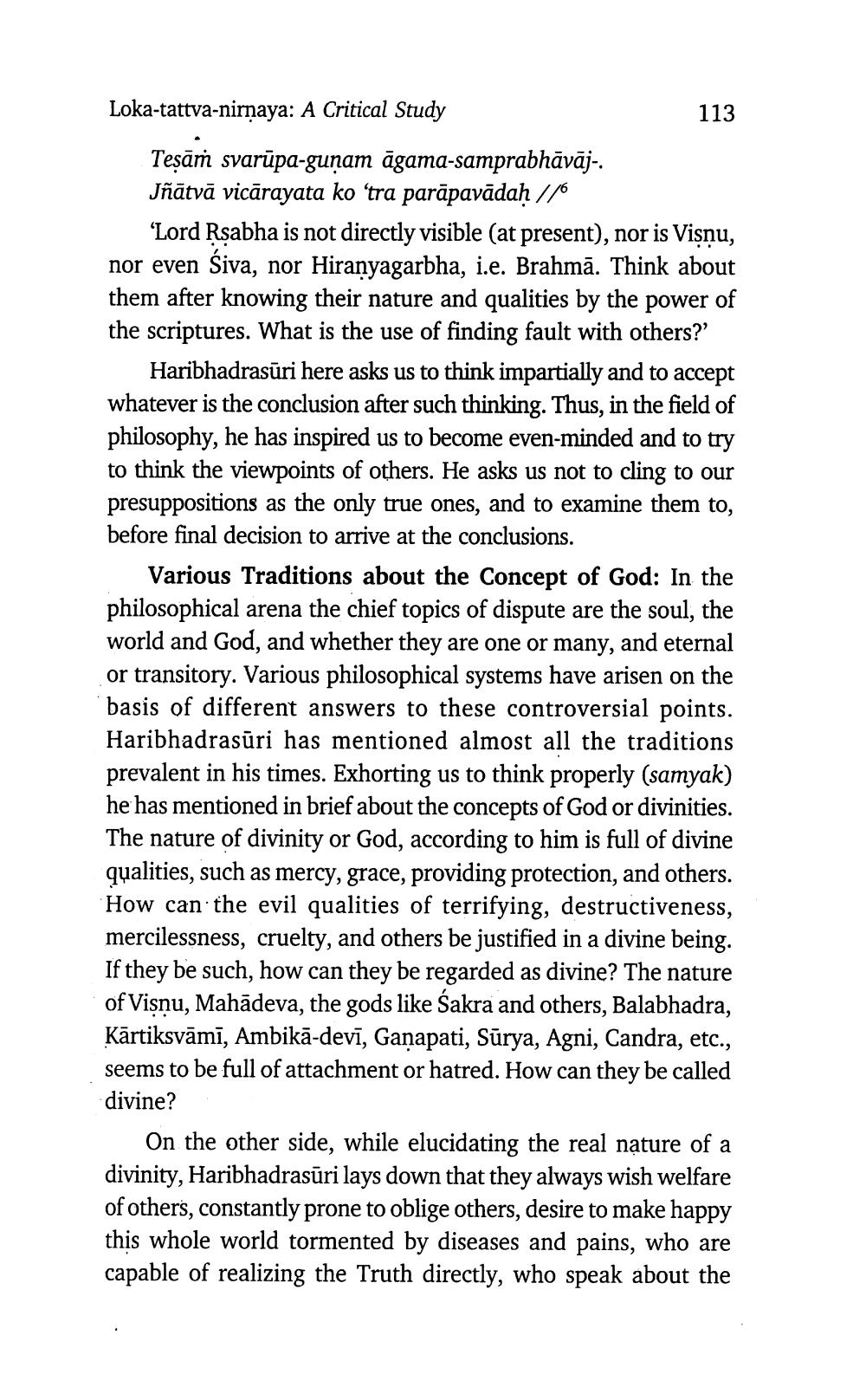________________
Loka-tattva-nirnaya: A Critical Study
113
Teşāṁ svarūpa-gunam āgama-samprabhāvāj-. Jñātvā vicārayata ko 'tra parāpavādaḥ //
‘Lord Rşabha is not directly visible (at present), nor is Vișnu, nor even Śiva, nor Hiranyagarbha, i.e. Brahmā. Think about them after knowing their nature and qualities by the power of the scriptures. What is the use of finding fault with others?'
Haribhadrasūri here asks us to think impartially and to accept whatever is the conclusion after such thinking. Thus, in the field of philosophy, he has inspired us to become even-minded and to try to think the viewpoints of others. He asks us not to cling to our presuppositions as the only true ones, and to examine them to, before final decision to arrive at the conclusions.
Various Traditions about the Concept of God: In the philosophical arena the chief topics of dispute are the soul, the world and God, and whether they are one or many, and eternal or transitory. Various philosophical systems have arisen on the basis of different answers to these controversial points. Haribhadrasūri has mentioned almost all the traditions prevalent in his times. Exhorting us to think properly (samyak) he has mentioned in brief about the concepts of God or divinities. The nature of divinity or God, according to him is full of divine qualities, such as mercy, grace, providing protection, and others. How can the evil qualities of terrifying, destructiveness, mercilessness, cruelty, and others be justified in a divine being. If they be such, how can they be regarded as divine? The nature of Vişnu, Mahādeva, the gods like Sakra and others, Balabhadra, Kārtiksvāmī, Ambikā-devī, Ganapati, Sūrya, Agni, Candra, etc., seems to be full of attachment or hatred. How can they be called divine?
On the other side, while elucidating the real nature of a divinity, Haribhadrasūri lays down that they always wish welfare of others, constantly prone to oblige others, desire to make happy this whole world tormented by diseases and pains, who are capable of realizing the Truth directly, who speak about the




